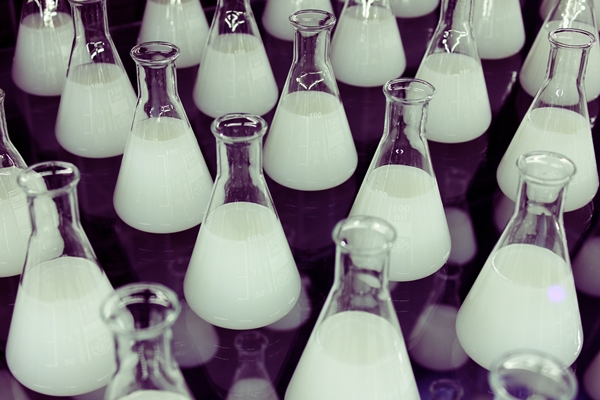22 Mar. 2023. A new company making antibodies that degrade disease-causing proteins on and outside cell surfaces is raising $50 million in its first venture funding round. EpiBiologics, founded last year and incubated in San Mateo, California, is commercializing technology developed in the lab of its scientific founder and licensed exclusively from University of California in San Francisco.
The EpiBiologics process seeks to create synthetic antibodies that degrade proteins causing diseases such as cancer, neurological conditions, and immune system disorders. The company’s technology is based on research by Jim Wells, professor of pharmaceutical chemistry at UC-San Francisco, and colleagues that investigate cell signaling processes, and proteins that activate or inhibit cell signals, particularly those involved with cell death or inflammation.
The Wells Lab published findings in Sept. 2022 describing synthetic antibodies that act on protein targets found on both cell membrane surfaces and the environment outside cells. In the paper, researchers address proteins in lysosomes, cell components with enzymes that protect and maintain cell integrity, but also self-destruct the cell if necessary. The team’s genetically-encoded synthetic antibodies carry a cytokine enzyme that binds to corresponding cytokine receptors for targeting, and an enzyme that degrades the disease-causing protein of interest. The technology also builds in decoy receptors to attract and target related cytokines secreted in lysosomes. The researchers say this approach provides a targeted, modular, and selective technology for therapies addressing specific or broad types of cells and tissue.
Synthetic antibodies reflecting dual targets
EpiBiologics says up to now protein degradation strategies focused on targets inside cells, but with these discoveries engineered antibodies can also act on proteins secreted in cells’ external or extracellular environment, thus catching targets that would otherwise escape. The company says its technology, called EpiTac, produces synthetic antibodies reflecting these dual targets, and since its founding created an atlas of antibodies designed to degrade proteins associated with diseases in a range of tissues.
“Since launching the company,” says co-founder and president Rami Hannoush in an EpiBiologics statement, “the team at EpiBiologics has been able to further validate and industrialize the EpiTac platform, creating a fit-for-purpose atlas of degraders. The current financing will enable us to expand and validate the platform, advance our pipeline of drug candidates, and further build our talented team of scientists and protein engineers.”
EpiBiologics is raising $50 million in its first venture founding round led by Mubadala Capital in Abu Dhabi and life science investor Polaris Partners in Boston. Taking part in the financing are Vivo Capital and GV, formerly Google Ventures, the investment arm of Alphabet. Mubadala Capital and Polaris Partners formed and incubated the company in its early stages. “EpiBiologics represents a key example of our company formation efforts,” says Alaa Halawa, executive director of U.S. ventures at Mubadala Capital, “where we worked hand-in-hand with the founding scientists to build the company from the ground up. We have a strong conviction in the transformative potential of EpiBiologics to advance the field of protein degradation.”
More from Science & Enterprise:
- Psychoactive Drug Start-Up Raises $40M in Early Funds
- Green Energy Chemical Company Starts-Up, Raises $15M
- Allergy Antibody Biotech Gains $40M in New Funds
- New Venture Funds to Back Life Science, Tech Start-Ups
- Food Protein Biotech Adds €4M in Seed Funds
We designed Science & Enterprise for busy readers including investors, researchers, entrepreneurs, and students. Except for a narrow cookies and privacy strip for first-time visitors, we have no pop-ups blocking the entire page, nor distracting animated GIF graphics. If you want to subscribe for daily email alerts, you can do that here, or find the link in the upper left-hand corner of the desktop page. The site is free, with no paywall. But, of course, donations are gratefully accepted.
* * *


 RSS - Posts
RSS - Posts
[…] Start-Up Licenses Protein Therapy Tech, Raises $50M […]